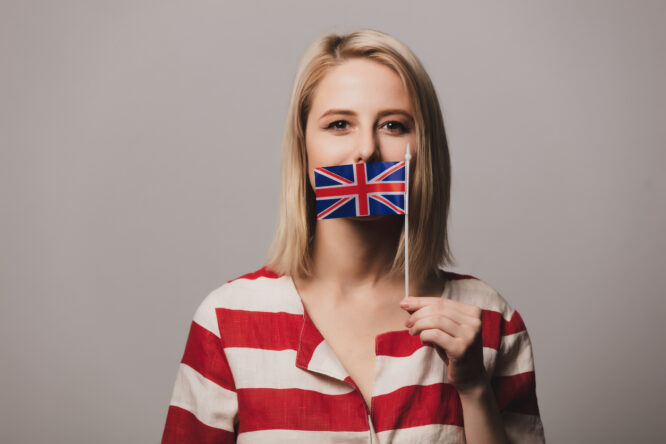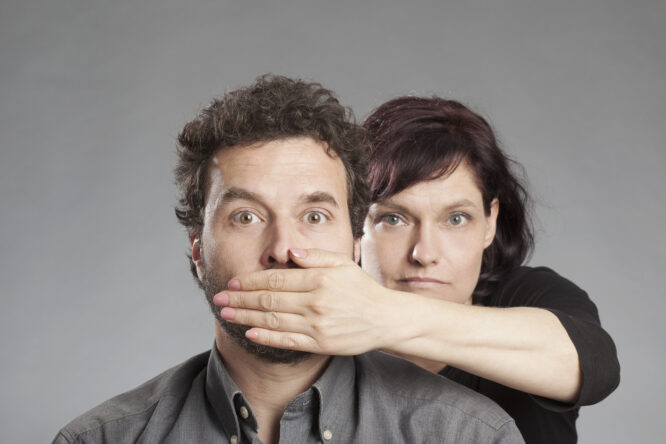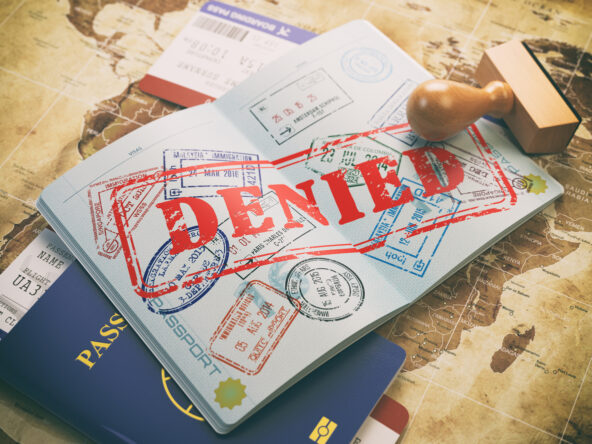English is spoken around the world, but not all English words land the same in other countries.

Some words that seem completely harmless back home take on a totally different meaning elsewhere—sometimes confusing, sometimes funny, and occasionally a bit awkward. If you’ve ever accidentally said something that made people chuckle or blink at you in surprise abroad, this might be why. Here are 16 everyday English words you might want to use with caution when travelling.
1. “Gift” — Germany

In English, it means a present. In German, it means poison. So if you’re happily chatting about “gifts” while in Germany, just be prepared for some puzzled expressions. Most locals will understand from context, but it’s still one of those moments where a completely innocent word ends up sounding a bit grim in translation.
2. “Preservative” — France

Talking about food with added preservatives? Fair enough in English. But in French, “préservatif” doesn’t mean what you think—it’s actually the word for something entirely unrelated to jam-making. So if you’re proudly describing your homemade chutney and mention how it’s full of preservatives, it might lead to a few awkward giggles in a French kitchen.
3. “Fart” — Sweden

It’s not rude in Sweden, just amusing to English speakers. “Fart” there simply means speed. You’ll see it on road signs like “Fartkontroll,” which is a perfectly serious word for speed monitoring. It’s always good for a chuckle the first time, but Swedes are used to it. Just try not to point and laugh too loudly while they’re trying to drive.
4. “Kiss” — Sweden

Another one from Sweden—“kiss” there means something else entirely. It’s nothing inappropriate, but it doesn’t refer to a romantic gesture either. It actually means pee, believe it or not. So when talking to a Swedish friend about “just wanting a kiss,” you might need to clarify exactly what kind of moment you’re referring to.
5. “Pants” — UK vs. US

In the US, “pants” means trousers. In the UK, it means underwear. It’s one of the most common little mix-ups that creates mild confusion (and sometimes minor embarrassment) across the Atlantic. So if you’re an American saying you left your “pants” at someone’s house while visiting London, expect a few raised eyebrows and probably some teasing from your British friends.
6. “Barf” — Iran

In Persian, “barf” is the lovely word for snow. But to English ears, it sounds more like a word you’d use when you’re not feeling well—definitely not something you’d associate with winter beauty. If someone from Iran says they love barf, they’re talking about snowfall, not anything unpleasant. Still, the first time you hear it, it’s hard not to do a double take.
7. “Brat” — Russia

In English, “brat” is a bit of a put-down for a spoilt child. In Russian, “brat” just means brother—completely innocent, and used affectionately all the time. It’s not likely to cause problems, but it’s always worth knowing if you find yourself reacting to what sounds like a family insult when it’s actually a sweet sibling reference.
8. “Die” — Germany

It sounds dramatic in English, but in German “die” is just the word for “the” when used with feminine nouns. “Die Katze” just means “the cat.” Nothing sinister at all. Still, if you’re new to the language, it can be a little jarring to see it used so often in everyday conversation. Context is everything.
9. “No” — Poland

This is one of those words that completely flips meaning. In English, “no” is a clear negative. But in Polish, “no” actually means something more like “yes” or “well, yes”—depending on how it’s used. If you’re chatting to someone in Poland and they keep saying “no” while nodding, don’t panic—they’re probably agreeing with you. It just sounds completely backward at first.
10. “Pick” — Norway

If you say you’re going to “pick something up,” Norwegians might hear something that sounds close to their word for something slightly cheeky. It’s not inappropriate in English, but the sound alone can trigger some quiet laughs. It’s a classic example of how pronunciation can trip you up abroad, especially when you don’t realise you’ve said anything remotely funny.
11. “Bugger” — Australia

In the UK, this word is often said in a light-hearted or frustrated way—“oh bugger” when you’ve forgotten your keys, for example. But in some places, like Australia, it can have a sharper edge depending on context. It’s not offensive to everyone, but it’s definitely one to use carefully around people you don’t know well, especially in family settings or formal situations.
12. “Mist” — Germany

This one’s a surprising translation. In English, mist is that gentle morning fog that makes everything look calm and magical. In German, however, “Mist” means manure or muck. So if you’re raving about how much you love misty mornings while visiting Germany, just be aware it might sound a little less poetic than you intended.




